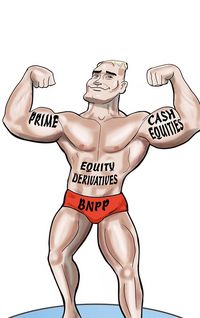Macro returns
Rising interest rates triggered dramatic swings in financial markets in 2022 as inflationary concerns returned to the fore. For building out its inflation business while helping clients in the transition to a higher rate environment, Citigroup is IFR’s Interest Rate Derivatives House of the Year.
![]()
After years of ultra-low interest rates, 2022 provided a once-in-a-generation shock to financial markets as central banks scrambled to bring inflation down from levels not seen in decades. The once sleepy world of inflation trading quickly entered the mainstream as prices spiralled higher, while short-term interest rate traders were suddenly rushed off their feet as the US Federal Reserve raised rates at the fastest clip since the early 1980s.
Citigroup’s interest rate derivatives franchise marked itself out in this extraordinary period, and not just for some well-timed investments in inflation trading and sterling rates that bore fruit in 2022’s volatile markets. Citigroup is also one of just a handful of bulge-bracket banks to have maintained a fully fledged rates derivatives trading operation in the leaner years preceding the pandemic, leaving it well positioned to capture the upswing in activity across different parts of the market.
That allowed Citigroup to reaffirm its pedigree in 2022, ranking as the number three investment bank in both G-10 rates and total rates trading by revenue in the first nine months of the year, according to analytics firm Coalition Greenwich.
“What helped us on top of the investments that we’ve done on inflation and the sterling business … [was] also keeping intact our infrastructure to trade the short-end part of the curve, even in periods when there was not too much activity there,” said Pedro Goldbaum, global co-head of rates. “That paid dividends when central banks became active again in that sector.”
The potential for runaway inflation played heavily on investors’ minds in the first half of the year following Russia’s invasion of Ukraine, a surge in energy prices and ongoing supply chain issues gumming up global trade. The formerly niche activity of inflation trading took centre stage, with banks and fund managers competing fiercely for a limited pool of talent.
Citigroup succeeded in bolstering its ranks to bring it to 16 dedicated inflation traders globally, including the hiring of Bari Spielfogel as global head of inflation products. That reinforced Citigroup’s standing and helped it grab the top market share in sterling inflation, the bank said, citing the UK’s Debt Management Office, having previously ranked in eighth place.
“The strength of our business overall in inflation in the US and globally has really been a cornerstone of our very strong performance this year,” said Deirdre Dunn, global co-head of rates.
Meanwhile, the timing of Citigroup’s investment in UK rates markets more broadly could hardly have been better. The bank hired Su Liu as head of sterling trading in 2021 and it was her team that found itself in the turmoil when volatility soared following the UK’s disastrous "mini-budget" in September.
A steep rise in long-dated Gilt yields forced pension funds using liability-driven investment strategies to sell bonds to meet margin calls on swap and repo positions, creating a self-reinforcing doom loop that only ended after the Bank of England intervened to steady these markets. Citigroup stepped up during what was one of the most turbulent periods for UK rates markets in history, helping clients shift positions and raise liquidity.
The bank’s client volumes in sterling rate markets increased fourfold in 2022, while during the height of the Gilts crisis it traded as much as US$10m DV01 gross a day (a risk gauge measuring how much a position stands to gain or lose from a 1bp move in rates) across sterling inflation, Gilts and swaps.
“We made the choice we wanted to be there for our clients, especially when things are tough,” said Liu. “That’s our business model, so we stepped in.”
While the bank’s flow franchise on both sides of the Atlantic may have registered huge volumes last year, Citigroup’s structured business remained a bright spot too. With equities selling off and fixed income yields increasing, Citigroup saw a surge in interest from retail investors in fixed-rate notes with its issuance increasing around fivefold in 2022.
“A lot of the structured notes actually helped us bring the theme of our funding and inflation together,” said Bhaavit Agrawal, global head of rates and currencies structured notes. “We sold inflation linkers to clients around the world at a time when they were really desperate to get exposure to inflation upside.”
To see the digital version of this report, please click here
To purchase printed copies or a PDF of this report, please email leonie.welss@lseg.com


